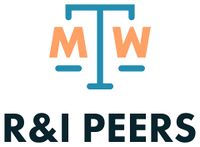R&I PEERS
|
The Marina proposal overall aim is to create an all-inclusive Knowledge Sharing Platform (KSP) catalysing and organising the convergence of already existing networks, communities, on-line platforms and services providing an online socio-technical environment that facilitates and stimulates the direct engagement of researchers, Civil Society Organisations (CSOs), citizens, industry stakeholders, policy and decision makers, research funders and communicators for improving Responsible Research and Innovation (RRI).
Background and Overview
The R&I Peers project will be based on the concept of gender equality, that can be expressed as “women and men enjoy the same status and have equal opportunity to realize their full human rights and potential to contribute to national, political, economic, social and cultural development, and to benefit from the results”.
Nonetheless, gender biasing currently permeates all life-domains, and claims for urgent need of interventions addressing strategic gender interests focus on fundamental issues related to women’s (or, less often, men’s) subordination and gender inequities. Strategic gender interests are long-term, usually not material, and are often related to structural changes in society regarding women’s status and equity. This is also the case of the Research Sector, in which women still systematically disappear from higher levels of academic hierarchy.
Despite existing signs of progress towards gender equality amongst top-level graduates in the EU, overall, positive changes since 2004 were not sufficient to produce gender balance across different fields by 2012 [1]. The partners are aware that the obstacles experienced by individuals and groups striving for self-development are often indirect and difficult to discern. They are caused by structural phenomena, social representations and personal and professional cultures that are often difficult to grasp and are particularly resistant to change.
The problems faced by research institutions can be summarised as [2]:
- Opaqueness in decision-making processes;
- Institutional practices inhibiting career opportunities:
- Unconscious bias in assessing excellence
- Wasted opportunities and cognitive errors in knowledge, technology and innovation;
- Employment policies and practices.
These problems are magnified in the Mediterranean Countries because of the cultural and welfare model, mainly based on the differentiation between the role of women (pivotal role as responsible of family caring) and men (“the breadwinner”). The SHE Figures 2015 [3] statistics highlight the gap among the Mediterranean area and the other European areas.
These are systemic difficulties and the R&I Project partners had chosen an approach that considers that gender-neutral policy should go hand in hand with gender-sensitive measures, thus ensuring effective equality of opportunities between men and women in science and technology and, therefore, complying with the “equality between men and women”, one of the European Union’ founding principles. This perspective is aligned with the Rome declaration [4] (produced during the RRI-SSH conference held in Rome on November 2014, and organised by partner CNR), which calls on all stakeholders to further promote the whole RRI pillars in an integrated way.
- ↑ SHE Figures 2015
- ↑ Structural change in research institutions: Enhancing excellence, gender equality and efficiency in research and innovation (European Commission, EUR 24905, 2012)
- ↑ ec.europa.eu/research/swafs/pdf/pub_gender_equality/she_figures_2015-final.pdf
- ↑ https://ec.europa.eu/research/swafs/pdf/rome_declaration_RRI_final_21_November.pdf
